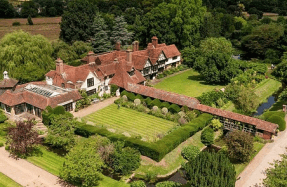

For all the latest news, visit countrylife.co.uk
THERE was an inevitability to the recent announcement that Glyndebourne would not undertake its usual tour this autumn. The East Sussex-based opera company, which has expanded its work in recent decades to include community projects and annual visits to locations such as Liverpool and Cambridge, was among the list of performing-arts organisations that have fallen victim to unexpected funding cuts. The changes are part of the biggest shake-up of Arts Council England (ACE) support since austerity measures were introduced after the 2008 financial crash, affecting a range of disciplines —particularly opera.
‘The maths was, sadly, quite simple,’ says Stephen Langridge, artistic director of Glyndebourne. ‘Our funding has been halved [from £1.6 million to £800,000] and we can no longer afford to go out on the road.’ The summer opera season, which is independently financed, has a long history of touring, bringing internationally acclaimed productions to towns and cities that may not have a local opera company. From 1968, ACE supported an official programme that has historically involved schools performances, workshops in care homes and mentoring work. ‘It has gone on to become a really important part of the opera ecology in the UK,’ adds Mr Langridge. ‘Many artists cut their teeth on the Glyndebourne autumn tour.’
Liverpool receives a double blow, no longer welcoming a Glyndebourne visit, nor one from Welsh National Opera (WNO), which has also cancelled its tour amid funding cuts. The Cardiff-based company receives funding from both the Arts Councils of England and Wales and had previously performed regularly in seven regions in England, including Southampton, Plymouth and Liverpool. Now, its ACE budget has been reduced by 35% (£2.2 million). Such financial constraints obviously demand




